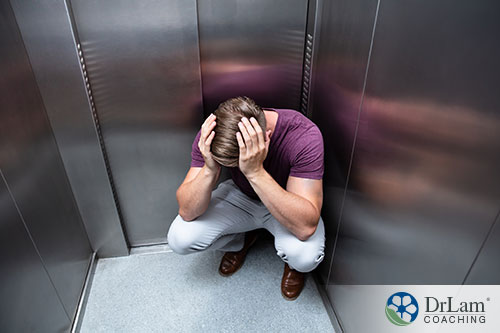 Benzodiazepines are one of the most prescribed medications in the U.S., possibly second only to opioids. In fact, the over-consumption of benzodiazepines has been called “the other drug crisis” along with opioids.
Benzodiazepines are one of the most prescribed medications in the U.S., possibly second only to opioids. In fact, the over-consumption of benzodiazepines has been called “the other drug crisis” along with opioids.
The number of prescriptions written for benzodiazepines in the U.S. increased by 320% between 1996 and 2013. During the same time interval, the number of deaths from overdose of these medications rose by 500%. All too often, there is also an overuse of benzodiazepines in opioid overdose deaths.
The potential for abuse of and addiction to these medications is very high.
In spite of the danger of abuse and addiction, there are legitimate uses for benzodiazepines that keep the number of prescriptions high. Calming anxiety and overcoming insomnia are the two main reasons for the use of these medications.
The world in which we live is full of things that can lead to anxiety and a corresponding inability to get good sleep. This, combined with the tendency of people to want a quick fix for these conditions, spurs the increased need for prescriptions for these medications.
Some other indications for the use of benzodiazepines include relief of the spasticity that comes with pathology of the central nervous system, relief from seizures that come with epilepsy, muscle relaxation, and use in surgical procedures to induce amnesia for the procedure and relief from anxiety leading up to the procedure.
Benzodiazepines are a class of medications designed primarily to alleviate anxiety and some other neuropsychiatric disorders. Due to their high potential for abuse and addiction, they are a controlled medication and only available legally through prescriptions from an authorized medical professional. However, their availability illegally is spurred by this high potential for abuse and addiction.
Commonly placed in the family of medications known as minor tranquilizers, benzodiazepines generally work to make the nerves in the brain less sensitive to stimulation.
Generally, this type of medication is said to be safe for human use and effective for their prescribed effect. There have been instances of paradoxical results such as increased aggression or behavioral disinhibition. In a small percentage of people, use of these medications has led to increased panic and worsened agitation. In some people, the use of benzodiazepines has been associated with an increased risk of suicide.
The long-term use of these medications is not recommended because of decreasing effectiveness, which can lead to a need for higher dosages. A major risk of this approach is developing dependence, withdrawal effects, and a higher risk of developing dementia.
Improvement in both physical and mental health is common once benzodiazepines have been stopped.
However, it is important never to stop this type of medication on your own, as benzodiazepine withdrawals can be lethal. Always consult with your healthcare professional before stopping or decreasing your use of these medications.
There are some populations with which these medications should not be used. The elderly are at a much greater risk of unwanted effects from benzodiazepines as it can lead to increased delirium. Pregnant women also should not take them. Research has shown a possibility that these medications can cause cleft palate in some babies. Neurobehavioral effects are also a possibility due to exposure in the womb. Withdrawal effects in newborns exposed to these medications have been reported.
When someone overdoses on benzodiazepines, a deep state of unconsciousness and death can occur. If taken along with alcohol or opioids, the risk of fatal overdose increases significantly. Benzodiazepines are also highly addictive. That is why it’s so common to see benzodiazepines used along with other medications and drugs of abuse.
There are a number of appropriate uses of these medications. They are considered safe when used for these purposes and in the dosages prescribed.
 Anxiety/Worry - Anxiety is one of the most common forms of mental health issues. Chronic worry with no significant reason that lasts for six months or longer and clearly impairs a person’s ability to function is called Generalized Anxiety Disorder (GAD). This is a frequently occurring condition in the U.S. and seems to affect older people particularly. Benzodiazepines are most often used as adjuncts to the antidepressants that are the first-line medications of choice for GAD. They are used to control the anxiety until the antidepressants take effect in 4-6 weeks.
Anxiety/Worry - Anxiety is one of the most common forms of mental health issues. Chronic worry with no significant reason that lasts for six months or longer and clearly impairs a person’s ability to function is called Generalized Anxiety Disorder (GAD). This is a frequently occurring condition in the U.S. and seems to affect older people particularly. Benzodiazepines are most often used as adjuncts to the antidepressants that are the first-line medications of choice for GAD. They are used to control the anxiety until the antidepressants take effect in 4-6 weeks.The focus of this article will be on Ativan and Valium. When benzodiazepines are discussed, these are the two under consideration due to their popularity and use in the U.S.
These two benzodiazepines can be considered in the presence of Adrenal Fatigue Syndrome (AFS) because of their lower potency. This is, however, not to say that they do not have addictive behavior.
Ativan is frequently chosen because it leaves the body faster, thus lessening the potential for side effects. In addition, Ativan interacts unfavorably with fewer medications than does Valium.
Both of these medications have the potential for addiction and can cause symptoms that include fatigue, drowsiness, memory problems, unsteadiness, and depression. However, the shorter the half-life, the easier the body can build up a tolerance to it.
 These medications work by enhancing the effectiveness of gamma-aminobutyric acid (GABA) in the brain. GABA is a neurotransmitter that reduces the activity of nerves in your brain. Increasing its effectiveness with benzodiazepines reduces brain activity.
These medications work by enhancing the effectiveness of gamma-aminobutyric acid (GABA) in the brain. GABA is a neurotransmitter that reduces the activity of nerves in your brain. Increasing its effectiveness with benzodiazepines reduces brain activity.
When the effectiveness of GABA is increased, the production of several other neurotransmitters such as norepinephrine is reduced. Norepinephrine is one of the excitatory neurotransmitters in the brain. It sometimes floods the brain in cases of severe stress.
These excitatory neurotransmitters play a significant role in many of your body’s functions. Some of these functions are regulation of heart rate and blood pressure, alertness, memory, muscle tone and coordination, endocrine gland secretions, and emotional responses. All of these functions can be affected by benzodiazepines.
These medications work in your brain by attaching to receptors located in different areas of the brain.
One set of the receptors for benzodiazepines is located primarily in the thalamus, cerebellum, and cortex of your brain. This accounts for the sedative effects of benzodiazepines and for the amnesic and anticonvulsant effects of Valium.
Another set of receptors for these medications is found primarily in the limbic system, the dorsal horn of the spinal cord, and the motor neurons. This accounts for anxiety relief and muscle relaxation.
Metabolites of benzodiazepines are bound to proteins and found in many parts of the body. Very often they accumulate in lipid-rich areas such as adipose tissue and the central nervous system. Most of these medications are handled by your liver in both phase I and phase II and are excreted through your urine.
The production of active metabolites prolong the effects of these medications. Valium, in particular, produces a number of active metabolites that increase the effects of the medication over time. The elderly and people with liver problems are especially prone to the effects of these metabolites.
 Your adrenal glands are your first line of defense against the effects of stress. Stress can’t be avoided in this culture. And often stress becomes continuous and severe. When it becomes chronic, stress can cause significant issues.
Your adrenal glands are your first line of defense against the effects of stress. Stress can’t be avoided in this culture. And often stress becomes continuous and severe. When it becomes chronic, stress can cause significant issues.
With the onset of stress from any source, your adrenal glands begin producing and releasing higher levels of cortisol, the stress-fighting hormone, to deal with it. The more stress you encounter, the more the demand for cortisol increases. At some point, your adrenals will no longer be able to supply sufficient cortisol to meet this demand. Adrenal fatigue sets in.
Your body also has a mechanism for handling stress as it affects you. The NeuroEndoMetabolic (NEM) Stress Response is made up of six circuits composed of three organs or systems each. There is overlap among these circuits so that what affects one affects the others as well. As long as stress is controlled, these circuits work optimally. But when stress becomes chronic and severe, the circuits can become dysfunctional. Everyone has one or more circuits that are the first to feel the effects of stress. It is these circuits that also show the first symptoms of stress.
Adrenal Fatigue Syndrome (AFS) often comes with sometimes vague and debilitating symptoms, all of which are connected to other systems in your body. Because of this, these medications are often not a good idea for addressing AFS symptoms. They also come with many potential side effects and withdrawal symptoms that can worsen AFS.
However, there may be indications for the short-term use of these medications with AFS. More will be said about this later in this article.
First, it is necessary to discuss the effects of benzodiazepines on the symptoms of AFS.
The Neuroaffect circuit is made up of the brain, central nervous system, and the microbiome. It is the circuit most likely to be affected by the use of these medications. This circuit describes the biological aspects of mental health disorders and is not neuropsychiatric in nature. The triad of microbiome-brain-autonomic nervous system uses neurotransmitters as a means of communication.
When stress from any source hits your body, the autonomic nervous system, working through the sympathetic nervous system (SNS), starts the process of responding to stress. It works to gear your body up to fight against or flee from the source of stress. As long as the stress is mild, the SNS deals with it.
Norepinephrine is the neurotransmitter that is utilized as long as stress is mild to moderate. It serves to increase several functions of your body in order to deal with stress.
If stress becomes chronic or severe, another branch of the autonomic nervous system becomes active. This branch is the adrenomedullary hormonal system (AHS).
 When this branch is activated, it releases a more potent neurotransmitter, epinephrine, which serves to dramatically increase several functions of your body. The potential for significant harm to your body comes with the release of epinephrine.
When this branch is activated, it releases a more potent neurotransmitter, epinephrine, which serves to dramatically increase several functions of your body. The potential for significant harm to your body comes with the release of epinephrine.
Under ideal circumstances, once the stress is handled adequately another branch of the autonomic nervous system is triggered. The parasympathetic nervous system (PNS) allows your body to slow down from the effects of epinephrine and to rest and recover from the episode.
However, stress tends to become chronic in our culture today. This leads to the AHS continuing to release epinephrine into your body. The potential for burn-out of your body looms greater. This continual release of epinephrine also puts more demand on your adrenals to put out more and more cortisol. Ultimately, your adrenals can’t meet this demand. AFS symptoms begin appearing.
One significant problem occurs with the continual release of epinephrine. The more is released, the more is produced. Therefore, a cycle can be set in motion that leads to panic attacks, a feeling of impending doom, and serious negative effects on your body.
Once the AHS is activated and begins releasing epinephrine, a flood of this neurotransmitter can surge throughout your body. This is a Reactive Sympathoadrenal Response (RSR). It serves to dramatically increase the occurrence of anxiety and panic attacks.
In addition to the RSR, an overload of norepinephrine can also take place. This is called Reactive Sympathetic Overload (RSO). RSO is less severe than RSR because of the higher level of epinephrine in the latter condition.
Both of these conditions lead to symptoms that point to the activation of the body in response to stress. Sleep disorders comprise one of the more challenging symptoms of these conditions.
Good sleep is vital to recovery from AFS and depression. With the flood of excitatory neurotransmitters seen in RSO/RSR, sleep is difficult. Lack of sleep then becomes another stressor on your body and begins the stress response cycle all over again. Your adrenals are prompted to release more cortisol. With the increase of cortisol in the presence of this new stressor, epinephrine levels rise also. The result of these two biochemicals increasing is sleep onset insomnia and/or sleep maintenance insomnia.
In addition, the production of DHEA released by the adrenals is shunted away to increase the production of cortisol to meet the demands of stress. Lower levels of DHEA stimulate the release of norepinephrine into your body, thus increasing the inhibition of sleep.
Stress, especially chronic stress, affects the functioning of your brain. Higher levels of hormones used in fighting stress can affect the brain centers involved in regulating emotional responses and cognitive abilities. This can then lead to distorted perceptions and inappropriate emotional responses.
Benzodiazepines can be considered a last resort to deal with the symptoms of AFS when RSO or RSR is severe. This is when any little trigger could cause panic, increased heart rate, or anxiousness in a person. If natural approaches to dealing with the panic and anxiety present in these conditions do not work, the short-term use of these medications to bring symptom relief can be beneficial.
However, in other cases, the medications will most likely result in negative effects.
In the case of advanced AFS, your body is already struggling to deal with the effects of stress with very reduced levels of cortisol. Benzodiazepines may suppress the level of cortisol even further. Thus, they will only exacerbate the struggle if used at this stage.
Both the NEM stress response and the adrenals are weakened by long-term use of these medications. Long-term use also becomes a stressor in itself due to side effects of the medications.
All of the functions typically regulated by excitatory neurotransmitters also will suffer when these neurotransmitters are dampened by the use of benzodiazepines.
In the person suffering from AFS, higher levels of cortisol decrease the levels of dopamine and serotonin. This increases the likelihood of depression, anxiety, and insomnia occurring. The person may then request benzodiazepines, which then affect the levels of cortisol, setting in motion a negative cycle. Benzodiazepines could be used to calm someone down temporarily, but should not be used long-term for AFS as much as possible.
 From all of the information considered, the use of benzodiazepines in people with AFS appears to be not recommended. Possibly using the medications on a short-term basis to deal with the anxiety and panic that result from RSO/RSR, after attempts to control them through natural means fail, would be appropriate. Other uses of these medications with AFS should be avoided.
From all of the information considered, the use of benzodiazepines in people with AFS appears to be not recommended. Possibly using the medications on a short-term basis to deal with the anxiety and panic that result from RSO/RSR, after attempts to control them through natural means fail, would be appropriate. Other uses of these medications with AFS should be avoided.
© Copyright 2020 Michael Lam, M.D. All Rights Reserved.
In advanced AFS anxiety and panic disorder can become problems. Use of benzodiazepines has alleviated these conditions on a short-term basis when natural approaches to dealing with anxiety have failed. However, there are serious risks associated with this use, and they should be weighed carefully.
